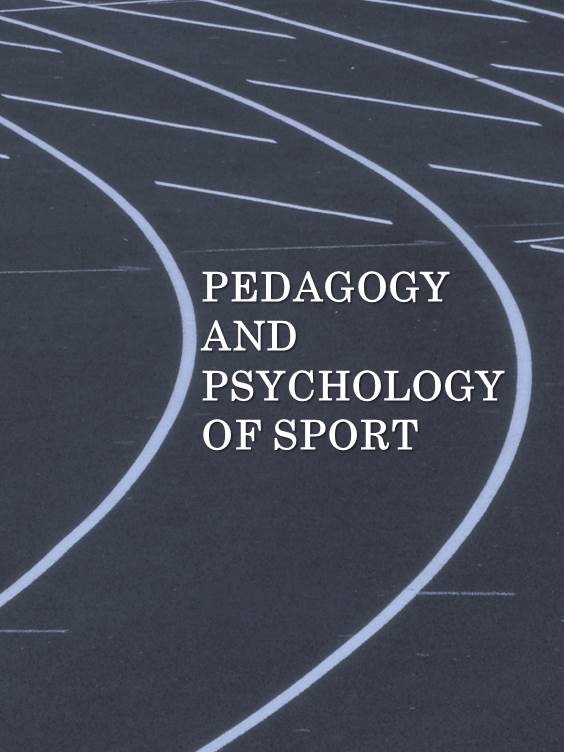The Dilemma of Hindering the Development of Chinese National Community Consciousness in the Post-Truth Era and Proposed Countermeasures
DOI:
https://doi.org/10.12775/PPS.2025.22.60171Keywords
post-truth, Historical nihilism, Online populism, postmodernismAbstract
The formation of Chinese national community consciousness requires accumulating individual perceptual understanding and deepening rational comprehension. In the post-truth era, the gradual infiltration of various erroneous ideologies into the social sphere, coupled with the rise of national public opinion, has led to a shift towards extremism in individuals' perceptual and rational understanding of the existence, development, and evolution of ethnic groups within a communal framework. This trend obstructs cultivating a positive, proactive, and healthy sense of the Chinese national community. The root cause of this challenge lies in the "weak facts, strong emotions" environment of public opinion, which has facilitated the spread of historical nihilism, network populism, cyber-nationalism, and postmodernism, undermining the cognitive foundation required for fostering a shared consciousness of the Chinese national community. To address this issue, the Party and the government must resolutely uphold the authority to interpret historical truths, promote the narrative power of the Chinese national story, and simultaneously build a more comprehensive emotional recognition mechanism within the public opinion sphere. Additionally, they should establish a broader ideological network to enhance the ideological influence of the Chinese national community, curbing the spread of harmful national public opinion and countering the erosion caused by the "post-truth" phenomenon.
References
Jiang, Y. L. (2018). From "Picture and Truth" to "Post - Truth" Era. Journal of Shaanxi Normal University (Philosophy and Society Edition), 2(2), 146–150.
Luo, Q. Q., & Kong, X. Y. (2022). Research on online public opinion and governance path in ethnic areas in the post - truth era. Northwest Ethnic Studies, 2(2), 63–71.
Ruan, K., & Du, Y. Q. (2017). The post - truth era in multidimensional vision: problems and countermeasures. Exploration and Controversy, 4(4), 4.
Lei, Z. Y., & Jia, X. R. (2017). An Analysis of Internet Public Opinion and Ethnic Relations. Journal of Yantai University (Philosophy and Social Science Edition), 3(3).
He, M. (2019). Epistemology, research topics and methodological innovations: On reconstructing ethnography. Xueyuan Publishing House.
Zhou, Y. (2018). Analysis of the Impact of Internet Public Opinion on Youth Patriotism Education. China Youth Research, 4(4), 102–107+19.
Li, Z. (2004). From epistemology to existential sensibility and its aesthetic significance [Doctoral dissertation, Fudan University].
Li, J. (2023a). Introduction to the Chinese National Community. The Commercial Press.
Le Bon, G. (2019). The rabble (L. Q. Lu, Trans.). Shanghai Translation Publishing House. (Original work published 10)
Hu, B. J. (2014). Persuasion and Recognition. Communication University of China Press.
Ma, G. Q. (2017). Multilayeredness of Memory and Chinese National Community Identity. Ethnic Studies, 6(6), 47–57+124–125.
Qin, Z. X., & Cao, F. (2004). Television History Drama: The Construction and Dissolution of Collective Memory. Modern Communication, 1(1), 42–44.
Li, T. K. (2020). New Changes in the Dissemination of Historical Nihilism and Its Response in the Post - Truth Era. Journal of Theory, 12(12), 57–63.
Wei, X. W., & Qin, X. (2020). The Threefold Logic of Criticizing Historical Nihilism--Studying ’s Important Discourse on the Four Histories. Ideological Education Research, 9(9), 25–30.
Reuters Institute for the Study of Journalism. (2017, January 3). Concerns about technology: Reuters releases the "2017 Media Predictions Report." NetEase. https://www.163.com/dy/article/CAM0RA7H05118VJ5.html
Wang, Y. L. (2019). Mechanisms of emotional communication in social media context. Young Journalist, 16(16), 52–54.
Taggart, P. (2005). Populism (M. X. Yuan, Trans.). Jilin People's Publishing House. (Original work published 15)
Chen, L. (2011). Discourse appropriation: The communication practice of online populism. International Journalism, 33(10), 16–21.
Xiong, K. X., & Yan, Q. (2006). National consciousness and nationalism in ethnic issues. Journal of Qinghai University for Nationalities, 1(1), 103–108.
Yan, Q., & Ping, W. B. (2018). Beyond extreme nationalism. Journal of Minzu University of China (Philosophy and Social Sciences Edition), 45(3), 22–30.
Luo, D., & Mao, Y. X. (2006). Controversial "Network Nationalism". China Youth Studies, 5(5), 47–51.
Wang, Z. H. (1995). Postmodern philosophy as a way of thinking. China Social Sciences, 1(1), 145–147.
Li, X. J. (2023b). The ideological trap of "post - truth" and the way to overcome it. Theoretical Guide, 5(5), 50–55.
Zhao, Y. H. (2017). The Formation of the Meaning World of Philosophical Semiotics. Sichuan University Press.
Qu, F. (2007). The Evolution and Influence of Postmodernism. Northern Essays, 3(3), 127–130.
Wang, Y. Promote cultural self-confidence and self - improvement, and create new glory of socialist culture.. People's Daily, October 17, 2022.
Hou, H. Q. (2014). On Ideological Discourse. Marxist Studies, 12(12), 5–12+157.
Hilbeck, Q., & Grier, N. (2016). History of Western Philosophy from Ancient Greece to the Present Revised Edition (J. Tong, Z. H. Yu, & J. Liu, Trans.). Shanghai Translation Publishing House.
Turner, J. H. (2009). Human emotions. Oriental Publishing House. (Original work published Preface 1)
Le Bon, G. (2019). The rabble (L. Q. Lu, Trans.). Shanghai Translation Publishing House. (Original work published 10)
Guo, X. A., & Zhu, M. Y. (2015). Discourse Characteristics and Mobilization Logic of Internet Populism. Journal of Tianjin Administrative College, 17(2).
Li, B. (2021). Generation Mechanism and Governance Path of "Negative Preferences" in Online Public Opinion Expression. People's Forum, 17(17), 102–105.
Zhao, Y. H. (2017). Philosophical Semiotics The Formation of Meaningful World. Sichuan University Press.
Zhang, Y. H., Qin, Z. G., & Xiao, L. (2017). The discriminatory nature of big data algorithms. Natural dialectics research, 5(5).
Mao, J. Q., & Zhang, X. (2022). Meta - universe: A new pattern of development in forging the sense of community of the Chinese nation. Journal of Yunnan University for Nationalities (Philosophy and Social Science Edition), 6(6), 14–22.
Zhou, X. (2017). Visual Construction, Visual Representation and Visuality - An Examination of Three Core Concepts of Visual Culture. Literary Review, 3(3), 17–24.
Downloads
Published
How to Cite
Issue
Section
License
Copyright (c) 2025 Shan Wang, Jiali Yao

This work is licensed under a Creative Commons Attribution-NonCommercial-ShareAlike 4.0 International License.
The periodical offers access to content in the Open Access system under the Creative Commons Attribution-NonCommercial-ShareAlike 4.0
Stats
Number of views and downloads: 919
Number of citations: 0



